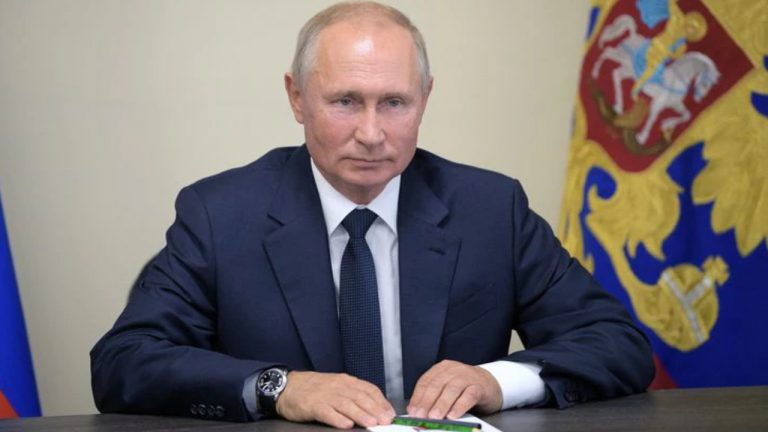Putin Signs Law Giving Cryptocurrency Legal Status in Russia
Publikováno: 2.8.2020
 Russia’s bill to regulate cryptocurrencies has been signed into law by President Vladimir Putin. The new law gives legal status to cryptocurrency but prohibits its use as a means of payment. Russian Crypto Bill Signed Into Law Russian President Vladimir Putin signed into law Friday the bill that regulates digital financial asset (DFA) transactions, Russian […]
Russia’s bill to regulate cryptocurrencies has been signed into law by President Vladimir Putin. The new law gives legal status to cryptocurrency but prohibits its use as a means of payment. Russian Crypto Bill Signed Into Law Russian President Vladimir Putin signed into law Friday the bill that regulates digital financial asset (DFA) transactions, Russian […]
The post Putin Signs Law Giving Cryptocurrency Legal Status in Russia appeared first on Bitcoin News.

Russia’s bill to regulate cryptocurrencies has been signed into law by President Vladimir Putin. The new law gives legal status to cryptocurrency but prohibits its use as a means of payment.
Russian Crypto Bill Signed Into Law
Russian President Vladimir Putin signed into law Friday the bill that regulates digital financial asset (DFA) transactions, Russian media RIA Novosti reported. It was approved by the State Duma, the lower house of the Russian parliament, on July 22 and by the Federation Council on July 24. The law will come into force on Jan. 1, 2021.
The law gives a definition to digital currency, stating that it “is recognized as an aggregate of electronic data capable of being accepted as the payment means, not being the monetary unit of the Russian Federation or a foreign state, and as investments,” Russian news agency TASS described. “The digital currency cannot be used at the same time to pay for any goods and services.”
Meanwhile, the law sets forth that digital financial assets “are digital rights comprising money claims, ability to exercise rights under negotiable securities, rights to participate in equity of a non-public stock company and right to claim transfer of negotiable securities set in a resolution on the DFA issue,” TASS noted. These assets can be sold, purchased, exchanged, and pledged. However, they cannot be used as a means of payment.
Russian banks and exchanges can become exchange operators of digital financial assets provided that they register with the central bank, the Bank of Russia. The publication elaborated:
The central bank is vested with the authority to maintain the register of information systems and the register of operators of digital financial assets exchange and supervise the business of information system operators.
Individuals and legal entities in Russia will only be able to challenge cryptocurrency transactions in court if they have declared these transactions and their possession of cryptocurrency, RIA Novosti detailed.
A number of cryptocurrency-related terms were excluded in the final bill after the second reading, such as “token” and “mining.” Anatoly Aksakov, head of the State Duma Committee on the Financial Market, told the news outlet that more detailed cryptocurrency regulation will be in another bill, which may be adopted in the autumn session. The bill that Putin signed into law is posted on the Russian government’s official internet-portal of legal information and can be found here.
What do you think about Russia’s crypto law? Let us know in the comments section below.
The post Putin Signs Law Giving Cryptocurrency Legal Status in Russia appeared first on Bitcoin News.